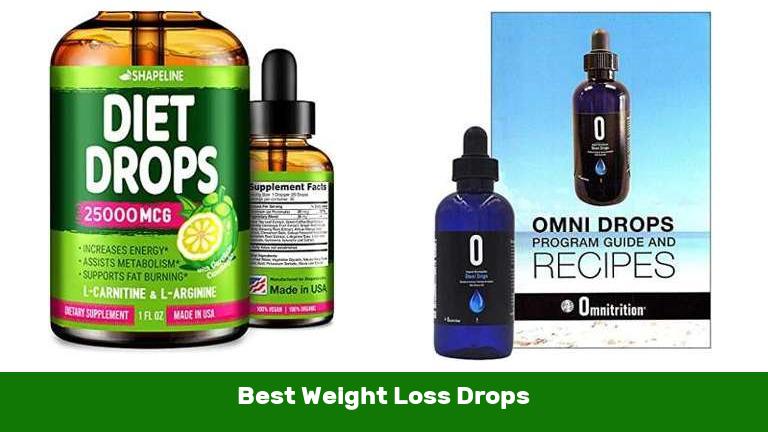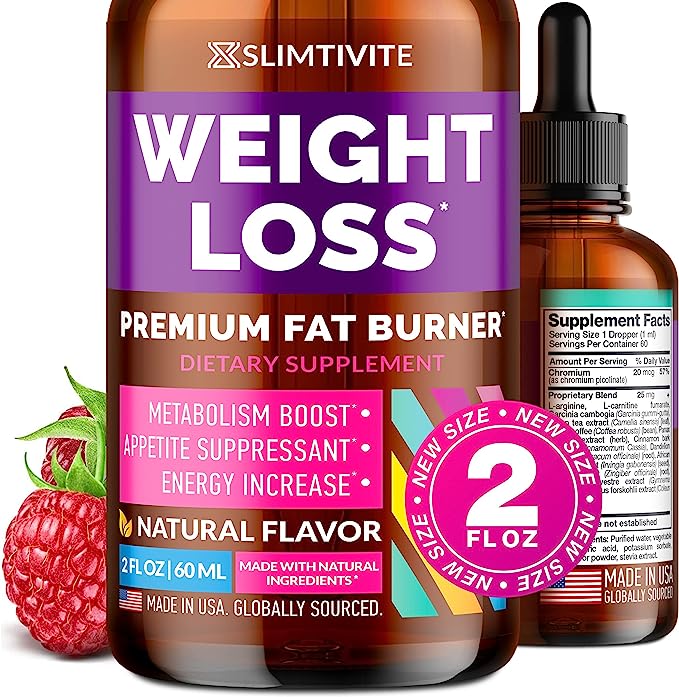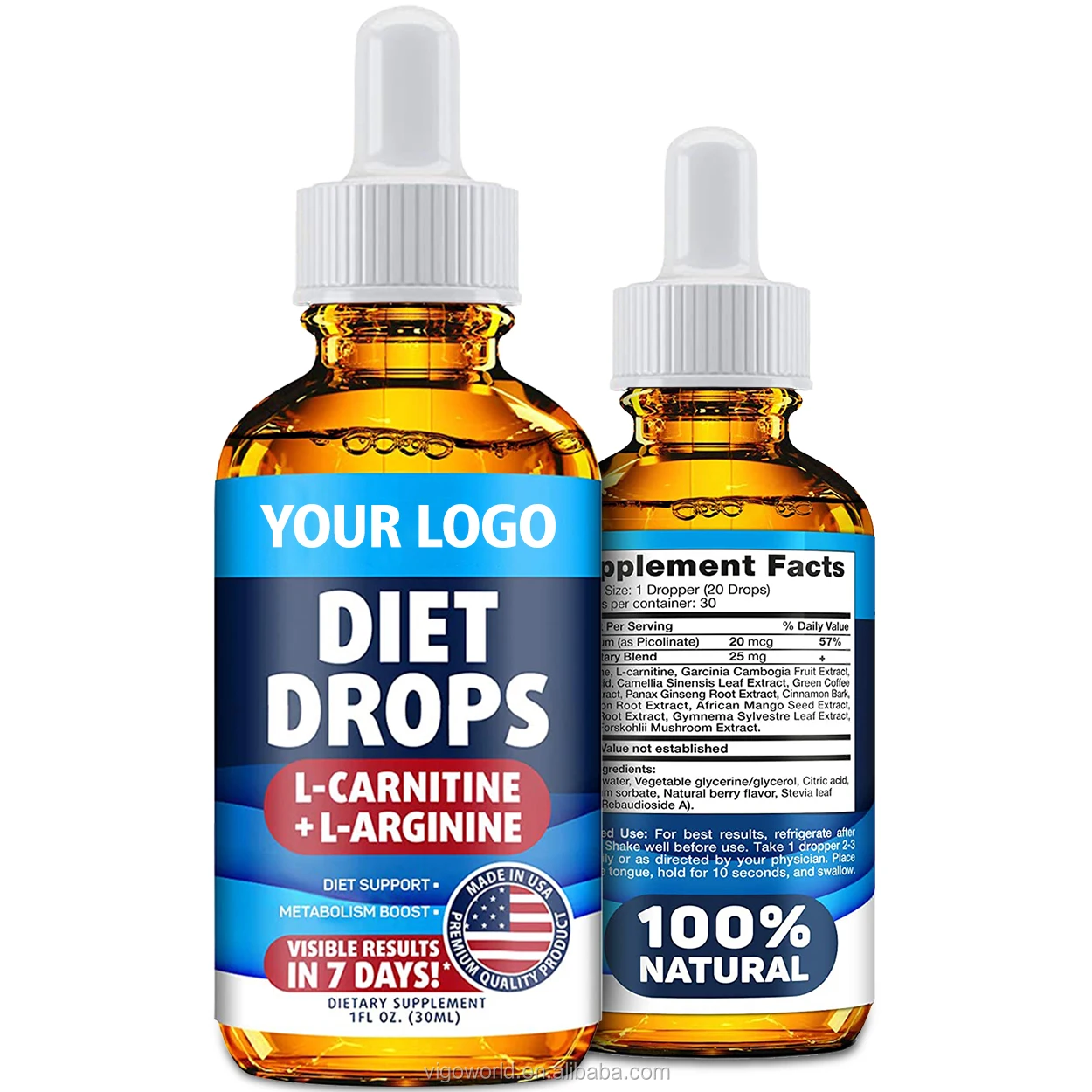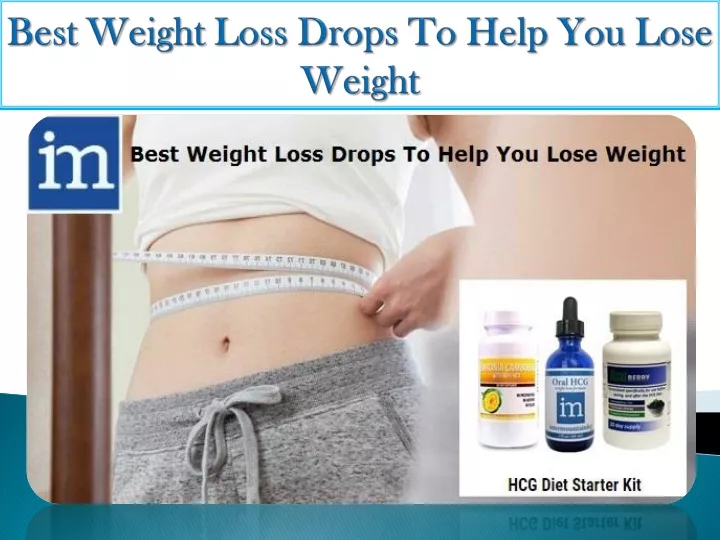Best Weight Loss Drops For Women

The pursuit of effective weight loss solutions has fueled a burgeoning market for dietary supplements, with weight loss drops specifically targeting women gaining considerable attention. These liquid supplements, often marketed with promises of rapid fat burning and appetite suppression, are drawing both interest and scrutiny from consumers and health professionals alike.
This article aims to provide an objective overview of weight loss drops for women, examining their ingredients, mechanisms of action (as claimed by manufacturers), potential benefits, and, most importantly, the scientific evidence supporting their use. It will also address the risks and regulatory landscape surrounding these products.
Understanding Weight Loss Drops
Weight loss drops are liquid supplements typically taken orally, often placed under the tongue for supposedly faster absorption. Manufacturers often claim these drops boost metabolism, curb hunger, and promote fat loss.
The claimed ingredients vary widely, including plant extracts, amino acids, vitamins, and minerals. Common examples include garcinia cambogia, green coffee bean extract, raspberry ketones, and various B vitamins.
Common Ingredients and Their Purported Effects
Garcinia cambogia: Marketed for its active ingredient, hydroxycitric acid (HCA), some suggest it blocks fat production and suppresses appetite. However, research on HCA's efficacy has yielded mixed results, with several studies showing no significant weight loss benefits.
Green Coffee Bean Extract: This extract contains chlorogenic acid, which is thought to reduce the absorption of carbohydrates and promote fat metabolism. Clinical trials examining the effect of green coffee extract on weight loss have produced varied results, and many studies have been small and potentially biased.
Raspberry Ketones: These compounds are structurally similar to stimulants and are believed to increase metabolism. However, most studies on raspberry ketones have been conducted in test tubes or animals, with limited evidence of their effectiveness in humans.
Scientific Evidence and Regulatory Oversight
A significant challenge in evaluating weight loss drops is the limited high-quality scientific evidence supporting their efficacy. Many studies are small, poorly designed, or funded by the manufacturers themselves, raising concerns about bias.
Furthermore, the Food and Drug Administration (FDA) does not evaluate dietary supplements for safety and effectiveness before they are marketed. This lack of pre-market approval means that the responsibility for ensuring product safety and accurate labeling falls primarily on the manufacturers.
This lack of regulation can lead to products containing undisclosed ingredients, inaccurate dosages, or unsubstantiated health claims. Consumers should be aware of the potential for misleading marketing practices and exercise caution when considering these products.
Potential Risks and Side Effects
Weight loss drops, like all dietary supplements, carry potential risks. Side effects can vary depending on the ingredients and individual sensitivities.
Some common side effects reported include digestive issues, headaches, anxiety, and increased heart rate. Certain ingredients can also interact with medications, posing risks to individuals with pre-existing health conditions. It is crucial to consult with a healthcare professional before using weight loss drops, especially if you are taking any medications or have any underlying health issues.
“It's important to remember that there is no magic bullet for weight loss,” says Dr. Jane Doe, a registered dietitian. "Sustainable weight loss requires a balanced diet, regular exercise, and lifestyle changes."
A Word of Caution
The appeal of quick and easy weight loss solutions is understandable, but it's essential to approach weight loss drops with a critical eye. Before using any weight loss product, consider the following:
- Research the ingredients: Understand what the ingredients are and if there is credible evidence to support the manufacturer's claims.
- Consult with a healthcare professional: Discuss the potential risks and benefits with your doctor or a registered dietitian, especially if you have any pre-existing health conditions or are taking medications.
- Be wary of exaggerated claims: If a product promises rapid or effortless weight loss, it's likely too good to be true.
- Look for third-party certifications: Some organizations, such as USP and NSF International, offer third-party testing and certification of dietary supplements, which can provide some assurance of product quality.
Conclusion
Weight loss drops for women represent a complex and often misleading area of the dietary supplement market. While some ingredients may show promise in preliminary studies, the overall evidence supporting their effectiveness for significant weight loss is weak.
The lack of stringent regulatory oversight raises concerns about product safety and accuracy of labeling. Consumers should prioritize evidence-based strategies for weight loss, such as adopting a healthy diet and engaging in regular physical activity, and consult with healthcare professionals before using any weight loss supplement.
Ultimately, a balanced approach focusing on sustainable lifestyle changes remains the most effective and safest path to achieving and maintaining a healthy weight. Remember, consult your doctor. Always.


















